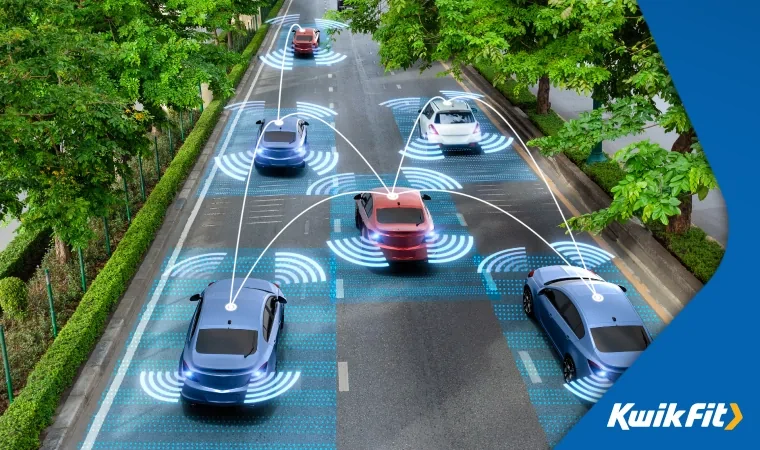Speed Limiters Introduced To Promote Driver Safety
Jack Dreyer | Friday 9th September 2022 9:00am

In around 30% of fatal road accidents, speeding is an essential contributory factor. But the EU’s new laws are set to change that.
On the 6th July 2022, a new law was passed cracking down on excessive speeding by motorists on European roads. Under this law, it is now compulsory for all new vehicles manufactured in the European Union to be fitted with a ‘speed limiter’ that warns drivers if they exceed the speed limit while driving.
But how do these speed limiters actually work? And, will this law be extended into the UK? Read on to find out.
EU road safety laws
The new speed limiter rules were launched in line with the UN’s wider Global Plan to reduce road traffic accidents by 50% by 2030. Under this plan, governments, NGOs, educational organisations, and the private sector have all been encouraged to implement policies that reduce road traffic casualties and fatalities - and speed limiting rules are just one of them.
The EU has its own Road Safety Policy Framework in place that aims to achieve its ‘Vision Zero’ of no fatalities and serious injuries by 2050.
The new speed limiter law
As of July 2022, all new vehicles manufactured in the European Union will have to have a speed limiter fitted. This will see the use of Intelligent Speed Assistance (or ISA) technology in conjunction with GPS data and traffic cameras to warn drivers if they exceed the speed limit (more on this later).
This technology comes under the wider category of ADAS, or Advanced Driver Assistance Systems. These technologies are all aimed at improving driver safety and also includes things such as lane assist, reversing cameras, and autonomous emergency braking.
What are speed limiters?

As part of the ISA system, speed limiters really are a handy bit of kit.
In essence, these speed limiters are a bit like cruise control. Once you turn it on, you can set your vehicle to the constant speed that you’d like — especially helpful in zones of ‘average speed’. When enabled, once you press down on the accelerator, you aren’t able to increase your speed above what you have already set it to. Or, if you are able, an alarm will sound until you return to below the set speed threshold. This type of speed limiter technology is known as the ‘adjustable’ type.
The new speed limiter technology enforced by the EU, on the other hand, is slightly more sophisticated than this and is known as the ‘intelligent’ type. It allows the driver far less autonomy over the speed that they travel at — not allowing them to set it themselves like when using cruise control.
When determining the speed, the ISA technology will instead use a combination of the following
a.) Road sign recognition
b.) GPS navigation data
After the appropriate speed for the road is determined, the speed limiter won’t allow the driver to exceed this for more than a few seconds. But how?
How do speed limiters work?

The sensors your car uses for cruise control are used in speed limiters too since they can determine the speed of your vehicle. From here, this information is sent to a computer in your car’s engine. Once this communicated value matches the value of the speed limit for the road you’re travelling on, the computer shuts off the flow of fuel and air to the engine. This prevents drivers from exceeding the speed they are currently at.
However, there is always the option to override every speed limiter, should you need to accelerate quickly. You can simply push down hard on the accelerator.
Aside from the physical inhibition of the car’s speed, there are plenty of actions that speed limiters can do to help control how fast a vehicle is travelling, including (but not limited to):
- Illuminate a dashboard light as a visual reminder of the speed
- Sound an alarm as a warning when the speed limit is exceeded
- Send vibrations through the accelerator pedal to remind users of their speed
- Sound an automated voice to remind users to slow down
- Take control of the brakes and slow the car down
- Apply a force to the driver's right foot causing them to lift off the gas
Will speed limiters be introduced in the UK?
As it stands, the speed limiters have not yet been rolled out across the UK, but this may well change. Many experts, and the majority of drivers, are calling for these pieces of kit to be introduced in the UK in the interest of public safety. So, despite it being an EU regulation, this speed limiter law will eventually be ratified into UK law too.
Will speed limiters affect me?
It is hoped that speed limiters will affect everyone in positive ways. Firstly, there is the intended effect of making roads a safer place for all users, reducing road traffic accidents and saving lives.
But there are other effects of this law. In Europe, all new cars will be impacted at some point. Though, some manufacturers (such as Ford, Peugeot, Mercedes, and Renault) have already fitted this type of technology into their vehicles. In the end, with fewer cars speeding above the legal limits (and fewer accidents), insurance premiums could go down dramatically.
Stay safe on the road
Even though speed limiters are soon to be compulsory in new UK vehicles, speeding will never be. To find out more about the hazardous effects of speeding, read another of our blogs on stopping distances. Or, to keep yourself safe on the road, book in for a free car safety check at your local Kwik Fit today.
Any facts, figures and prices shown in our blog articles are correct at time of publication.
Featured Articles
Is it Illegal to Drive With One Headlight?
Saturday 19th July 2025
Wondering if it’s illegal to drive with one headlight? Learn about the safety risks and penalties of illegal blown bulbs and why you should fix them promptly.
Air Con in EVs & Hybrids: Experts Answer Your Questions
Monday 30th June 2025
Does air con drain EV batteries? Can you use the air con while charging an electric car? Find out the answers to these questions & more from Kwik Fit’s experts.
Why Is Your Car Making a Noise? Fixes & Tips
Friday 13th June 2025
When your car starts making unexpected noises, it can certainly be quite disconcerting; it may be nothing to worry about, but here’s what you need to know.









